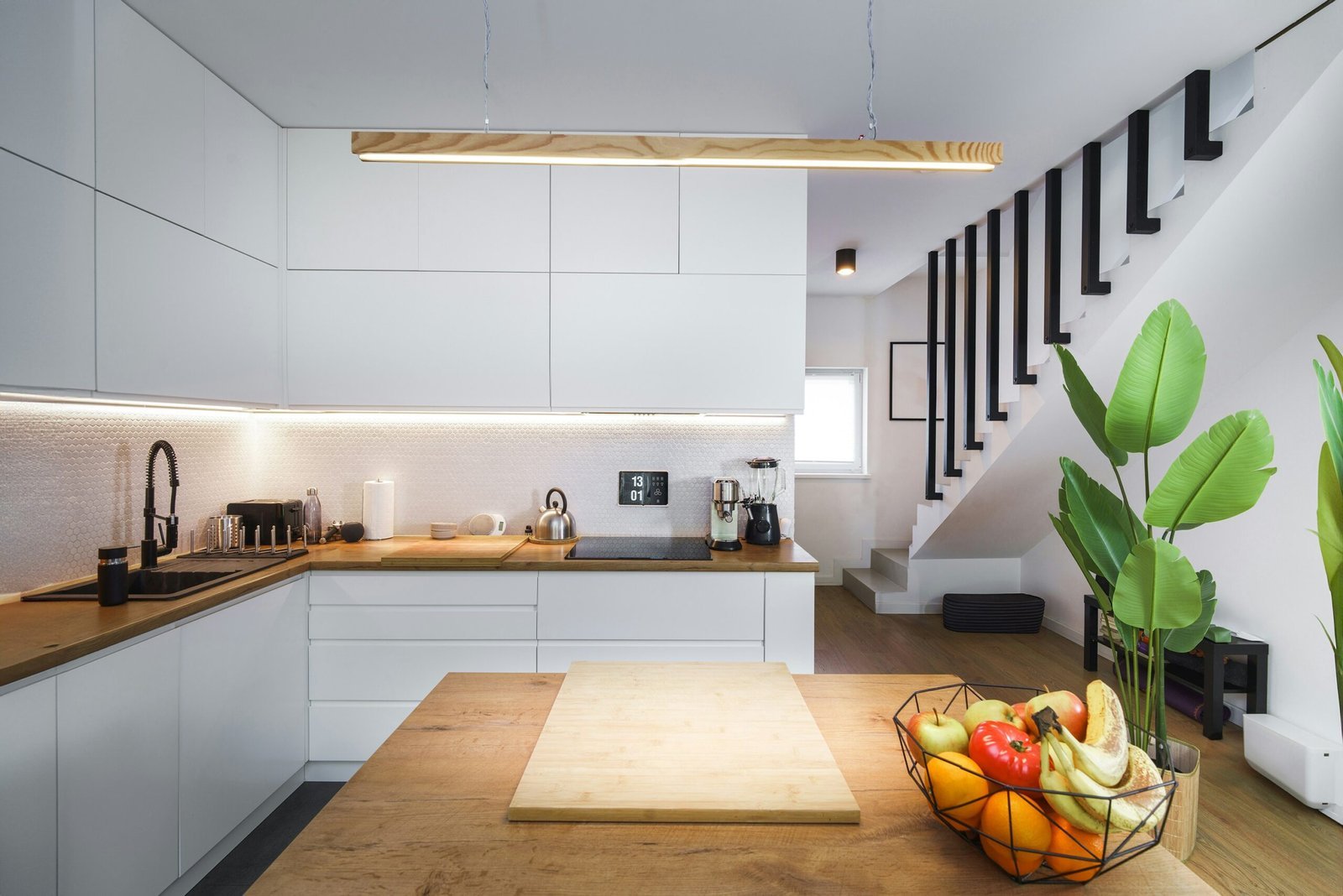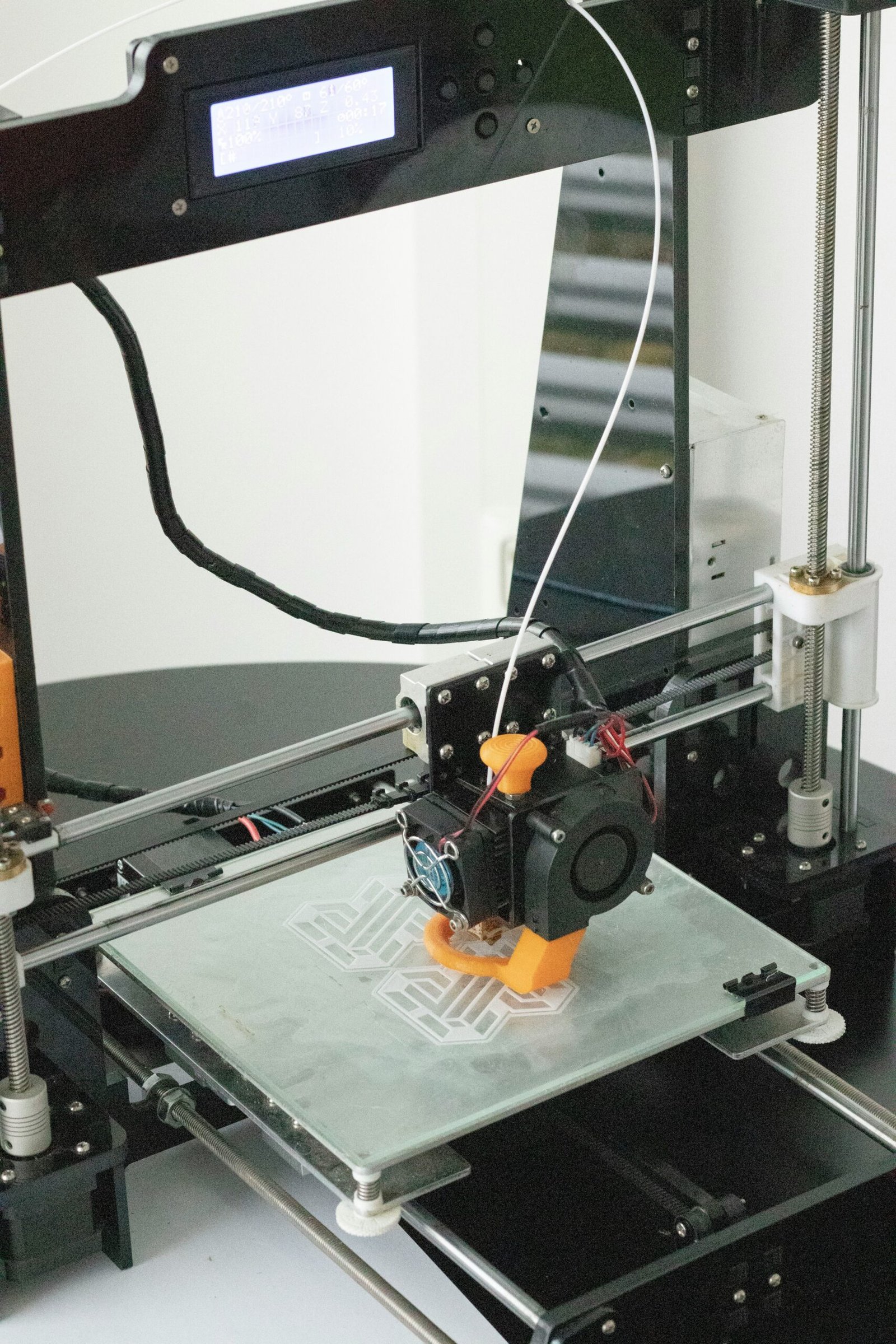
Introduction to Smart Kitchens
A smart kitchen represents the cutting-edge of household innovation, integrating technology seamlessly into the culinary space to create an efficient and intuitive environment. The concept of a smart kitchen is rooted in the use of advanced appliances and interconnected devices designed to streamline cooking and kitchen management tasks. At the heart of a smart kitchen, you will find smart ovens, refrigerators, dishwashers, and even coffee makers, all equipped with sophisticated sensors, internet connectivity, and the ability to be controlled remotely via smartphone apps or voice commands.
Technological advancements have facilitated the rise of the smart kitchen, with appliances now featuring touchscreens, AI-driven cooking assistants, and automated inventory management systems. For instance, a smart refrigerator can alert you when groceries are running low, suggest recipes based on available ingredients, and even place grocery orders online. Similarly, smart ovens can preheat at the touch of a button from a mobile device, ensuring your meal is cooked to perfection without constant supervision.
The benefits of these technologies are manifold. Firstly, they offer unparalleled convenience, allowing users to save time and reduce effort in day-to-day kitchen tasks. Secondly, the integration of IoT (Internet of Things) devices enables better energy management, leading to lower utility bills and a smaller environmental footprint. Furthermore, smart kitchens can contribute to healthier eating by offering personalized recipe suggestions and tracking nutritional intake.
Adoption rates of smart kitchens have been on the rise, reflecting a growing consumer interest in smart home technologies. According to recent surveys, nearly half of all new kitchen renovations now incorporate at least one smart appliance, with the global smart kitchen market projected to surpass $32 billion by 2027. Anecdotal evidence suggests that users appreciate the enhanced convenience and functionality these devices bring, often remarking on the ease of integration and user-friendly nature of smart kitchen gadgets.
In essence, smart kitchens are reshaping the culinary landscape, merging modern technology with traditional cooking practices to create a cohesive and efficient living experience.
Key Technologies Driving Smart Kitchens
The evolution of smart kitchens is fundamentally driven by a suite of cutting-edge technologies, each contributing to an enhanced, more efficient cooking experience. Central to this transformation is the Internet of Things (IoT). By interconnecting various kitchen appliances through the internet, IoT allows devices to communicate and cooperate seamlessly. For instance, smart refrigerators can track inventory, notify users of expiration dates, and even suggest recipes based on available ingredients. Companies like Samsung and LG are leading the way with their intelligent fridges and ovens, enabling unprecedented kitchen management.
Another pivotal technology reshaping smart kitchens is Artificial Intelligence (AI). AI enhances kitchen appliances by endowing them with the ability to learn from user behavior and make intelligent decisions. For example, AI-powered ovens can adjust cooking times and temperatures based on the type of food being prepared, ensuring perfect results every time. The June Intelligent Oven exemplifies this, using AI to recognize food items and automate appropriate cooking programs.
Voice-activated assistants such as Amazon Alexa and Google Assistant are rapidly becoming ubiquitous in smart kitchens. These devices provide hands-free control over various kitchen tasks, from setting timers and creating shopping lists to controlling smart appliances. Imagine being able to preheat your oven or adjust your smart thermostat simply by issuing a voice command. This integration not only adds convenience but also promotes a safer cooking environment by minimizing the need for physical interaction with devices.
Lastly, smart sensors play a crucial role in the smart kitchen ecosystem. These sensors can detect environmental changes, such as temperature fluctuations, moisture levels, and even the presence of smoke or gas. This ensures an extra layer of safety and efficiency in the kitchen. For instance, smart dishwashers equipped with leak detection sensors can notify users instantly, preventing potential water damage. Future advancements could see these sensors becoming even more sophisticated, predicting maintenance needs before issues arise.
As these technologies continue to evolve and integrate, the future of smart kitchens promises to be more interconnected, intuitive, and efficient, fundamentally transforming the culinary landscape.
Benefits and Challenges of Connected Cooking
Connected cooking, empowered by smart kitchen technology, offers numerous advantages that enhance the culinary experience. Among the primary benefits is increased convenience; smart appliances allow users to control multiple devices from a single interface. This interconnected control can significantly reduce the time spent in the kitchen, freeing up time for other activities. Furthermore, smart technology brings precise cooking accuracy. With built-in sensors and real-time monitoring, users can achieve perfect results consistently, reducing the guesswork and enhancing food quality.
Another significant advantage is enhanced food safety. Smart refrigerators and pantries can track expiration dates and suggest recipes based on available ingredients, minimizing food waste. Systems that monitor cooking temperatures and durations can also help in preventing undercooking or overcooking, reducing the risk of foodborne illnesses.
However, the realm of connected cooking is not without its challenges. Privacy concerns loom large as smart kitchen devices often collect extensive user data. This data can include personal habits, dietary preferences, and even health information, which could potentially be targeted by cyber-attacks. Furthermore, there is a notable learning curve associated with smart appliances. For those not familiar with advanced technology, using connected cooking devices can initially be overwhelming.
Interoperability issues between various devices and brands also present significant challenges. While some platforms strive for seamless integration, others remain isolated, limiting the efficiency of a fully connected kitchen. Additionally, the cost of smart appliances remains higher compared to traditional appliances, which can be a barrier for widespread adoption. Despite these challenges, the initial investment can often be offset by long-term savings in time, energy, and reduced food waste.
Real-world examples illustrate these points well. Families using connected cooking systems report substantial convenience and efficiency improvements, while experts recommend thorough research and gradual adoption to mitigate the learning curve and cost challenges. With proper management, the benefits of connected cooking can significantly outweigh the drawbacks, paving the way for smarter, safer, and more efficient kitchens in the future.
The Future Landscape of Smart Kitchens
The evolution of smart kitchens is poised to bring about significant changes, driven by rapid technological advancements. One of the most intriguing developments on the horizon is the concept of fully autonomous kitchens. These kitchens will leverage advanced robotics and artificial intelligence to perform tasks such as ingredient preparation, cooking, and even cleaning. Autonomous kitchens will potentially free up valuable time for users, making meal preparation more efficient and hassle-free.
Augmented Reality (AR) is expected to play a pivotal role in enhancing the cooking experience. AR will provide interactive and step-by-step cooking instructions, overlaid onto real-world views. This technology will enable users to follow complex recipes with ease, ensuring precise measurements and cooking techniques. Furthermore, AR could offer virtual cooking classes, connecting users with chefs worldwide for real-time guidance and collaboration.
Energy efficiency will also be a key focus area in the future of smart kitchens. Innovative startups are developing appliances that can optimize energy consumption, leading to more sustainable cooking practices. Smart systems will monitor usage patterns and make real-time adjustments to minimize waste and lower energy bills. These advancements will not only benefit individual households but also contribute to broader environmental sustainability goals.
The advent of 5G technology promises to revolutionize connectivity within smart kitchens. Enhanced network speed and reliability will support seamless communication between devices and allow for real-time updates. This enhanced connectivity will facilitate the integration of various smart kitchen appliances, creating a cohesive and harmonious cooking environment.
Personalized nutrition is another noteworthy aspect of the future smart kitchen landscape. AI-driven meal planning platforms will analyze users’ dietary preferences, nutritional needs, and health goals to curate tailored meal plans. These platforms will make it easier for individuals to maintain a balanced diet and achieve their wellness objectives. Essentially, smart kitchens will transform into hubs for customized healthy living.
Additionally, smart technology will enhance the communal and social aspects of cooking. Collaborative cooking experiences will become more accessible as smart devices connect friends and family members from different locations. Virtual dinner parties, interactive cooking sessions, and shared meal preparation will foster greater social interaction and bonding through cooking.
Industry experts and innovative startups continue to push the boundaries of what is possible in smart kitchens. Their visionary insights and ground-breaking solutions serve as a testament to the exciting future that awaits. The convergence of autonomous systems, augmented reality, energy efficiency, and integrated connectivity in smart kitchens signals a transformative shift in how we approach cooking and food management.










